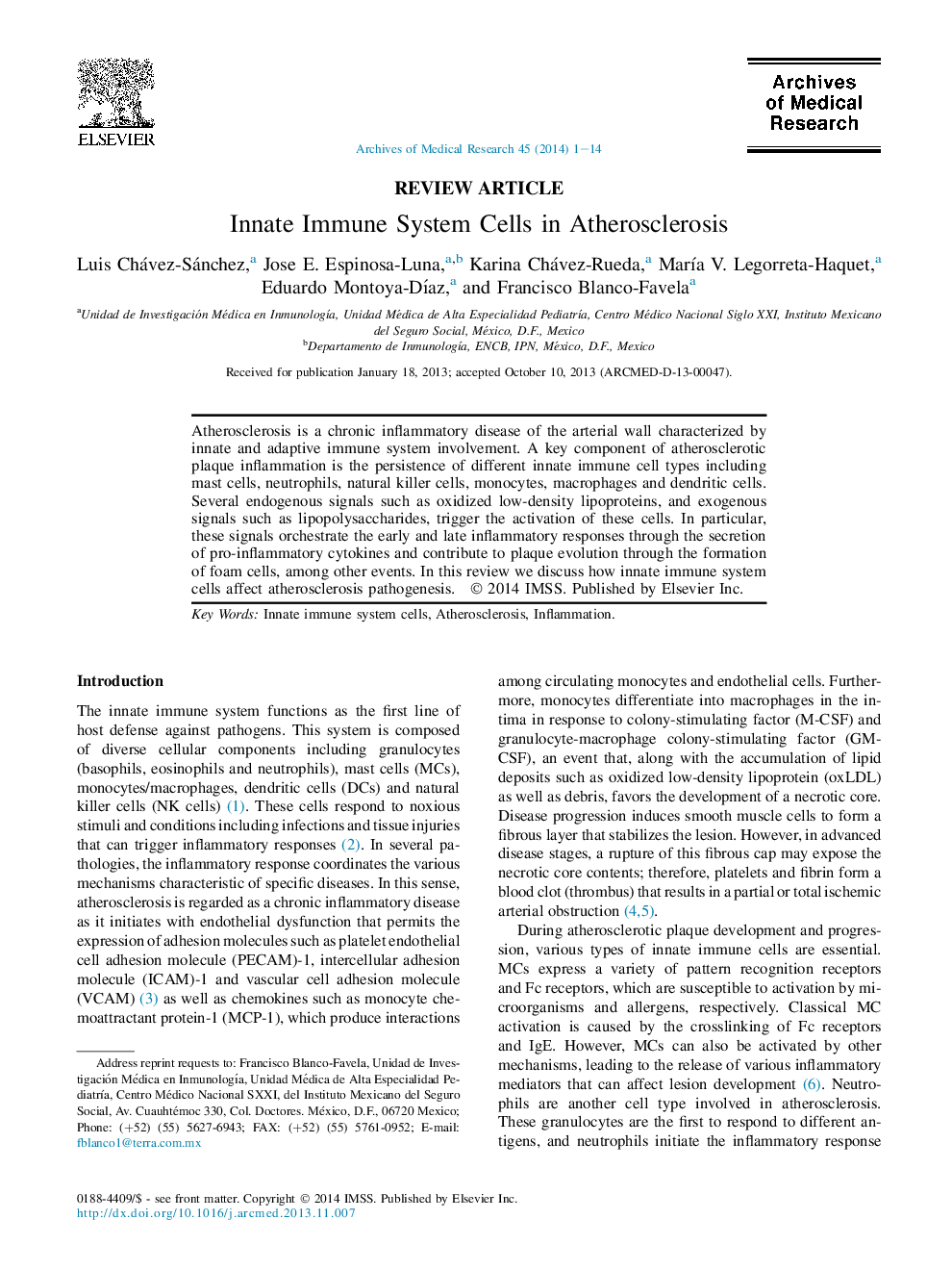| Article ID | Journal | Published Year | Pages | File Type |
|---|---|---|---|---|
| 3446412 | Archives of Medical Research | 2014 | 14 Pages |
Atherosclerosis is a chronic inflammatory disease of the arterial wall characterized by innate and adaptive immune system involvement. A key component of atherosclerotic plaque inflammation is the persistence of different innate immune cell types including mast cells, neutrophils, natural killer cells, monocytes, macrophages and dendritic cells. Several endogenous signals such as oxidized low-density lipoproteins, and exogenous signals such as lipopolysaccharides, trigger the activation of these cells. In particular, these signals orchestrate the early and late inflammatory responses through the secretion of pro-inflammatory cytokines and contribute to plaque evolution through the formation of foam cells, among other events. In this review we discuss how innate immune system cells affect atherosclerosis pathogenesis.
